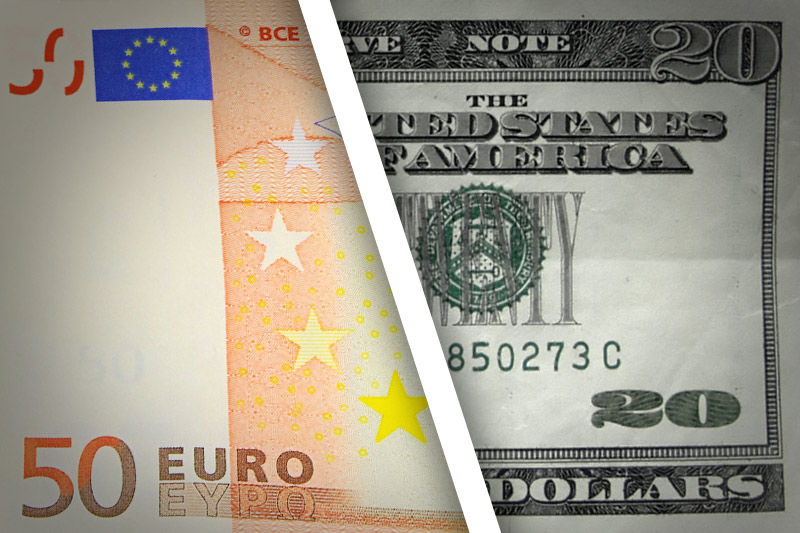Investing.com - The euro traded slightly lower against the dollar on Friday even though U.S. third-quarter gross domestic product rates beat expectations and sparked demand for risk.
Reports that Germany remains worried if Greece will receive its next shot of bailout money bolstered the greenback.
In U.S. trading on Friday, EUR/USD was trading down 0.02% at 1.2931, up from a session low of 1.2884, and off from a high of 1.2956.
The pair is likely to find support at 1.2884, the earlier low, and resistance at 1.2956, the earlier high.
The U.S. economy grew 2.0% in the third quarter, according to advance estimates release by the Bureau of Economic Analysis, up from 1.3% in the previous quarter.
The number beat analysts' forecasts for 1.9% economic growth in the third quarter, which sparked demand higher-yielding assets and enticed investors out of the safety of the greenback earlier.
Elsewhere in the U.S., Thomson Reuters/University of Michigan final survey on October consumer sentiment fell to 82.6 from a preliminary reading of 83.1.
Analysts had expected the index to tick down to 83.0 in October.
Brewing concerns that the European debt crisis may be rekindling in Greece watered down the mood.
German Finance Minister Wolfgang Schaeuble reportedly said doubts have arisen as to whether Greece will meet bailout requirements.
Elsewhere, an International Monetary Fund report found that Greek debt is poised to miss austerity targets agreed upon with international lenders.
Greece sought to allay worries by stating an agreement on an austerity package was being held up by opposition from a coalition ally.
Earlier this week, Greece said its European and IMF creditors gave it more time to push through austerity cuts though E.U. officials said otherwise, which prevented the euro from rallying.
Concerns the debt crisis may reheat in Greece dampened a risk-on rally.
The euro, meanwhile, was up against the pound and down against the yen, with EUR/GBP trading up 0.11% at 0.8032, and EUR/JPY trading down 0.79% at 103.04.
Reports that Germany remains worried if Greece will receive its next shot of bailout money bolstered the greenback.
In U.S. trading on Friday, EUR/USD was trading down 0.02% at 1.2931, up from a session low of 1.2884, and off from a high of 1.2956.
The pair is likely to find support at 1.2884, the earlier low, and resistance at 1.2956, the earlier high.
The U.S. economy grew 2.0% in the third quarter, according to advance estimates release by the Bureau of Economic Analysis, up from 1.3% in the previous quarter.
The number beat analysts' forecasts for 1.9% economic growth in the third quarter, which sparked demand higher-yielding assets and enticed investors out of the safety of the greenback earlier.
Elsewhere in the U.S., Thomson Reuters/University of Michigan final survey on October consumer sentiment fell to 82.6 from a preliminary reading of 83.1.
Analysts had expected the index to tick down to 83.0 in October.
Brewing concerns that the European debt crisis may be rekindling in Greece watered down the mood.
German Finance Minister Wolfgang Schaeuble reportedly said doubts have arisen as to whether Greece will meet bailout requirements.
Elsewhere, an International Monetary Fund report found that Greek debt is poised to miss austerity targets agreed upon with international lenders.
Greece sought to allay worries by stating an agreement on an austerity package was being held up by opposition from a coalition ally.
Earlier this week, Greece said its European and IMF creditors gave it more time to push through austerity cuts though E.U. officials said otherwise, which prevented the euro from rallying.
Concerns the debt crisis may reheat in Greece dampened a risk-on rally.
The euro, meanwhile, was up against the pound and down against the yen, with EUR/GBP trading up 0.11% at 0.8032, and EUR/JPY trading down 0.79% at 103.04.
